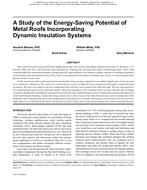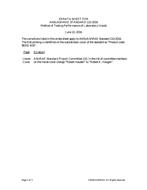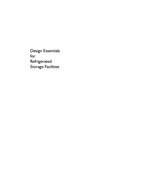Click here to purchase
In the U.S., the current testing and rating procedure for residential air-conditioning and heat-pumping equipment (e.g., AHRI 210/240) is based on a steady-state performance measurement approach with a degradation coefficient to account for cycling losses at part-load conditions. The test equipment performance is measured at different ambient conditions with different compressor and fan speeds, which is then propagated through a temperature-bin method to estimate seasonal performance. Though the current rating approach provides a standard performance metric for comparing different equipment relative performances, it is a steady-state testing approach that involves overriding the native controls and therefore does not consider the effect of test unit integrated controls and their dynamic interactions with representative building loads. As an alternative, a load-based testing methodology has been developed in which the dynamic performance of equipment is measured in a test facility by allowing it to respond to a simulated virtual building model. Hjortland and Braun (2019), Patil et al. (2018), and Cheng et al. (2021) describe the load-based testing methodology in detail which forms the basis for CSA standard draft EXP07 (2019). In this paper, a comparison of the steady-state and load-based approaches is performed for seasonal performance estimation of a heat pump in heating mode. Here, a 5-ton heat pump system performance was measured based on the two testing approaches, and heating seasonal performance was estimated and compared for different climate zones. The differences in the two test methodologies’ performance evaluation results for different ambient conditions are discussed, along with their ability in capturing equipment performance that is representative of field application.
Product Details
- Published:
- 2022
- Number of Pages:
- 9
- Units of Measure:
- Dual
- File Size:
- 1 file , 2.4 MB
- Product Code(s):
- D-LV-22-C025
- Note:
- This product is unavailable in Russia, Belarus


